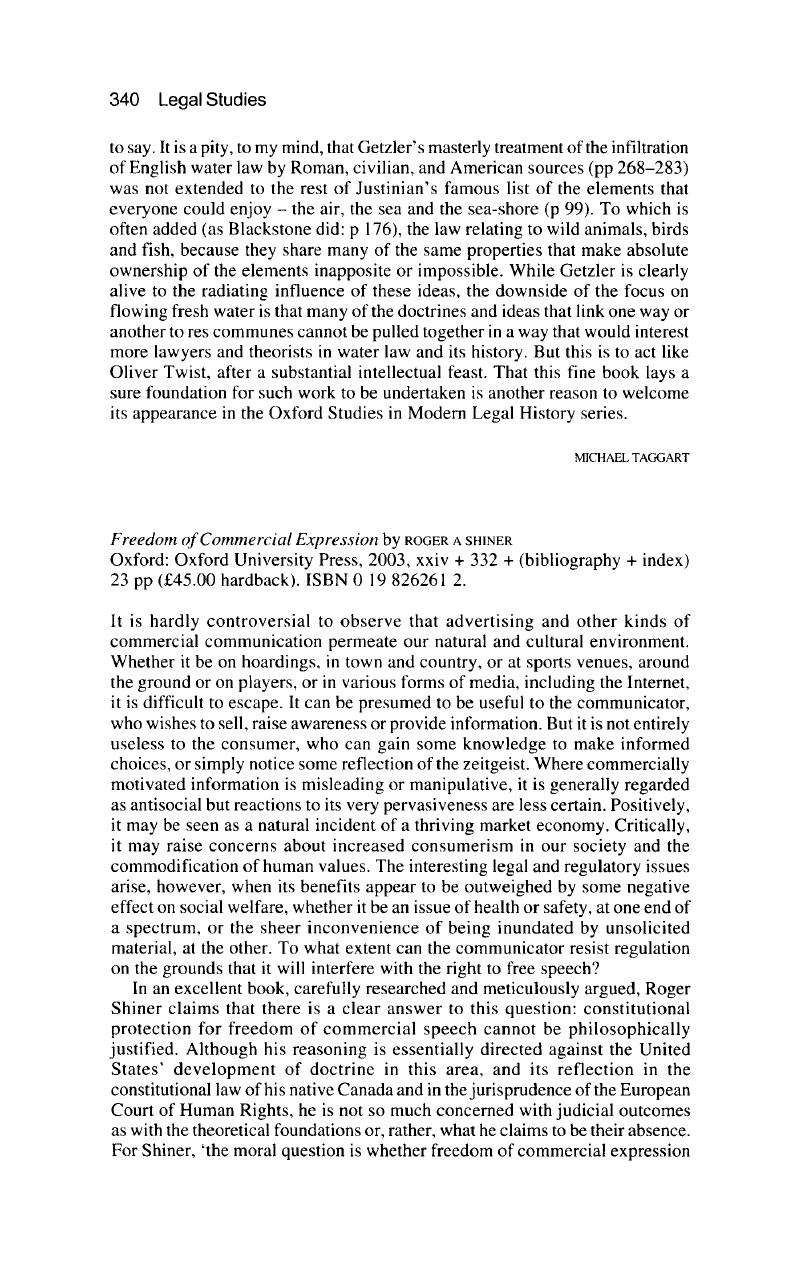No CrossRef data available.
Published online by Cambridge University Press: 02 January 2018

1. Valentine v Chrestensen 316 US 52 (1942).
2. 376 US 254 (1964).
3. Virginia State Board of Pharmacy et a1 v Virginia Citizens Consumer Council Inc et a1 425 US 748 ( 1976).
4. Subsequently, the court limited the extent of the protection by holding that, compared with political and cultural expression, restrictions on Commercial speech attract a less strict level of scrutiny: Central Hudson Gus & Electric Cotpn v Public Service Commission of New York 447 US 557 (1980); and 44 Liquormnrt Inc v Rhode Island 517 US 484 (1996).
5. A controversial Canadian example is RJR-MacDonald Inc v Canada (Attorney- General) (1995) 127 DLR (4th) 1. In the European Court of Human Rights, examples are Markt Intern Verlag & Klaus Beermann v Germany ( 1990) 12 EHRR 16 1 ; Jacubowski v Germany (1994) 19 EHRR 64; Hertel v Switzerland (1998) 28 EHRR 534.
6. C Munro ‘The Value of Commercial Speech’ (2003) 62 CLJ 134.
7. Shiner cites C E Baker ‘Media Concentration: Giving Up on Democracy’ (2002) 54 Fla L Rev 854.
8. Here, Shiner is adopting Meir Dan-Cohen’s taxonomy of the grounds for rights: M Dan-Cohen Rights, Persons and Organizations: A Legal Theory for Bureaucratic Society (Berkeley: University of California Press, 1986).
9. For example, M Redish Money Talks: Speech, Economic Power and the Values of Democracy (New York: New York University Press, 2001).